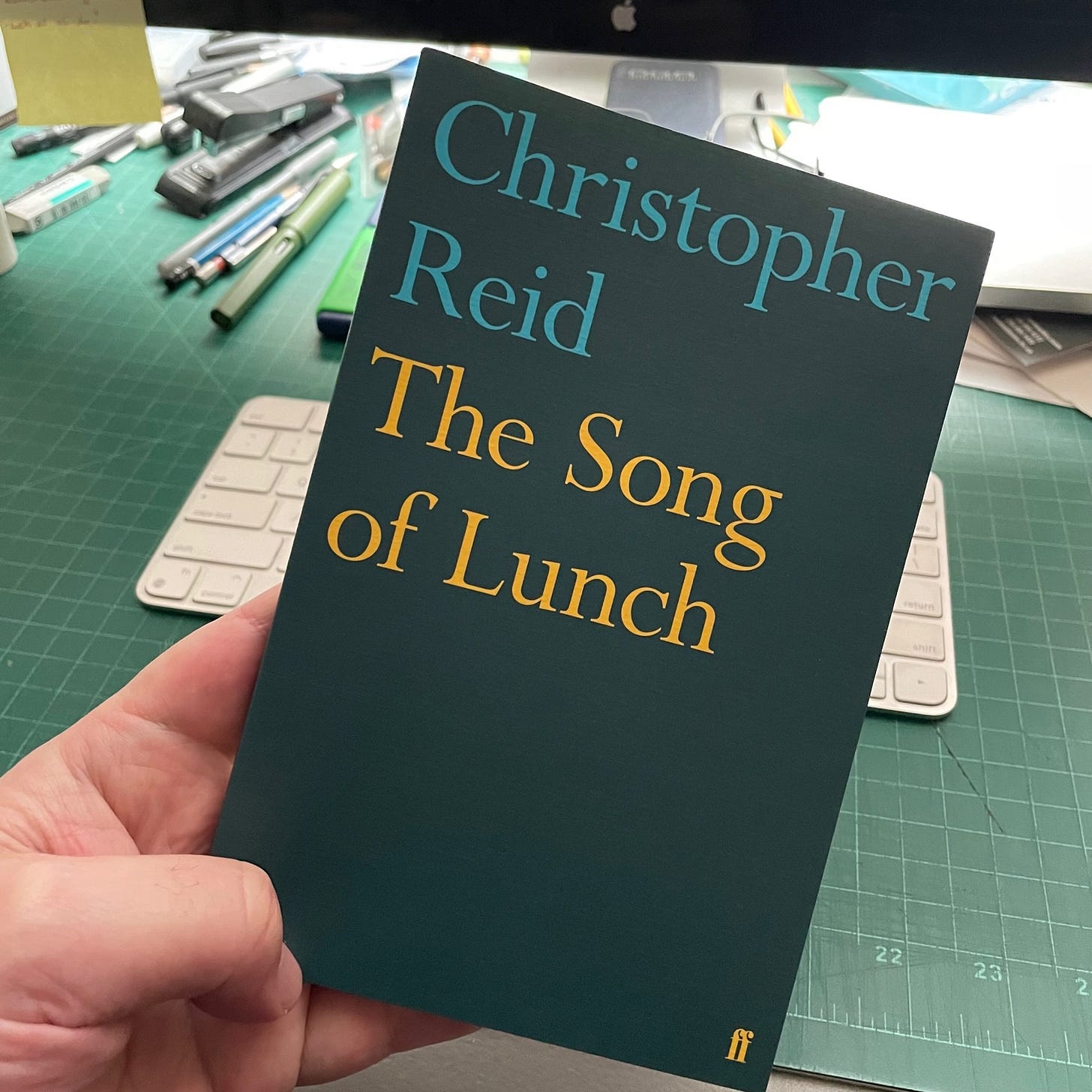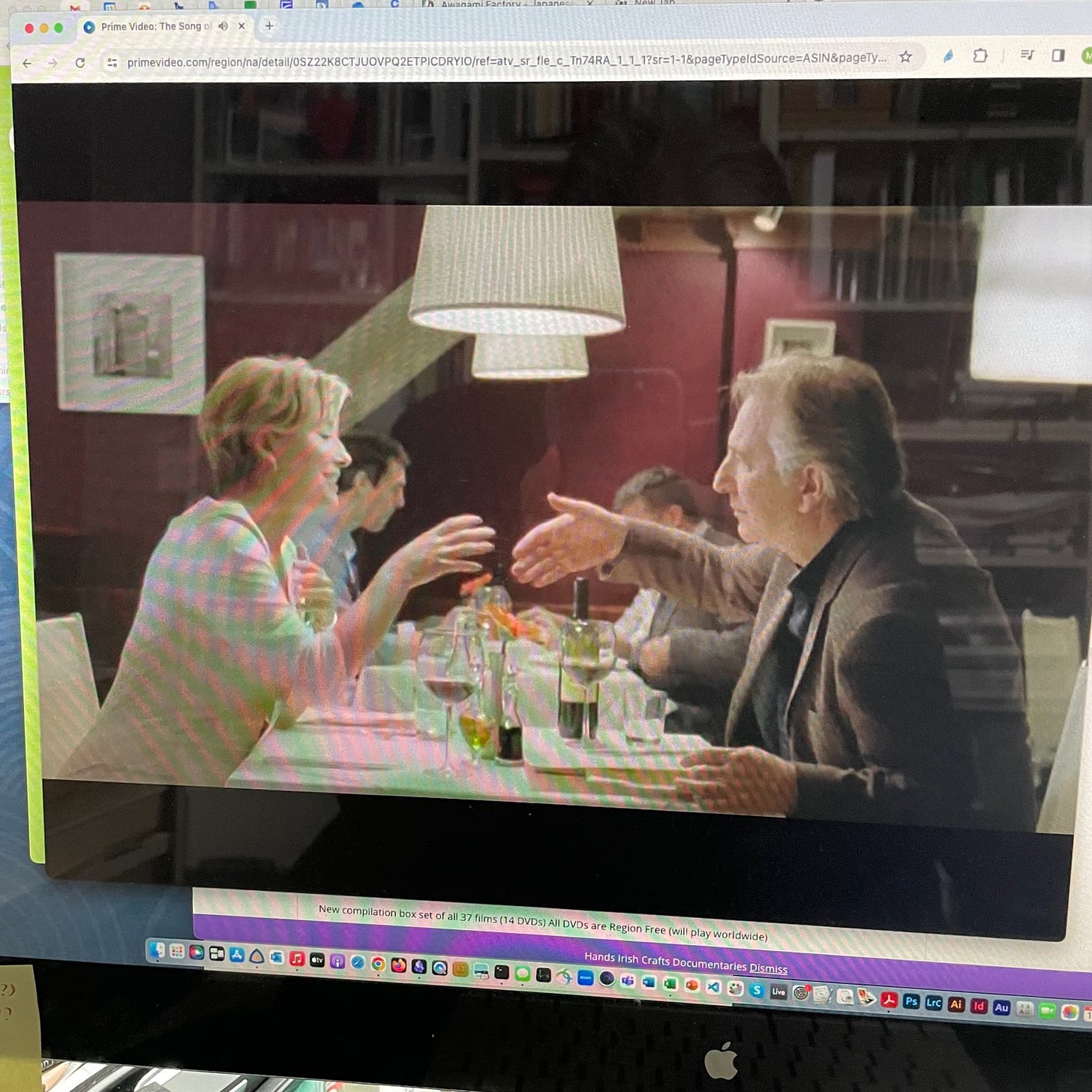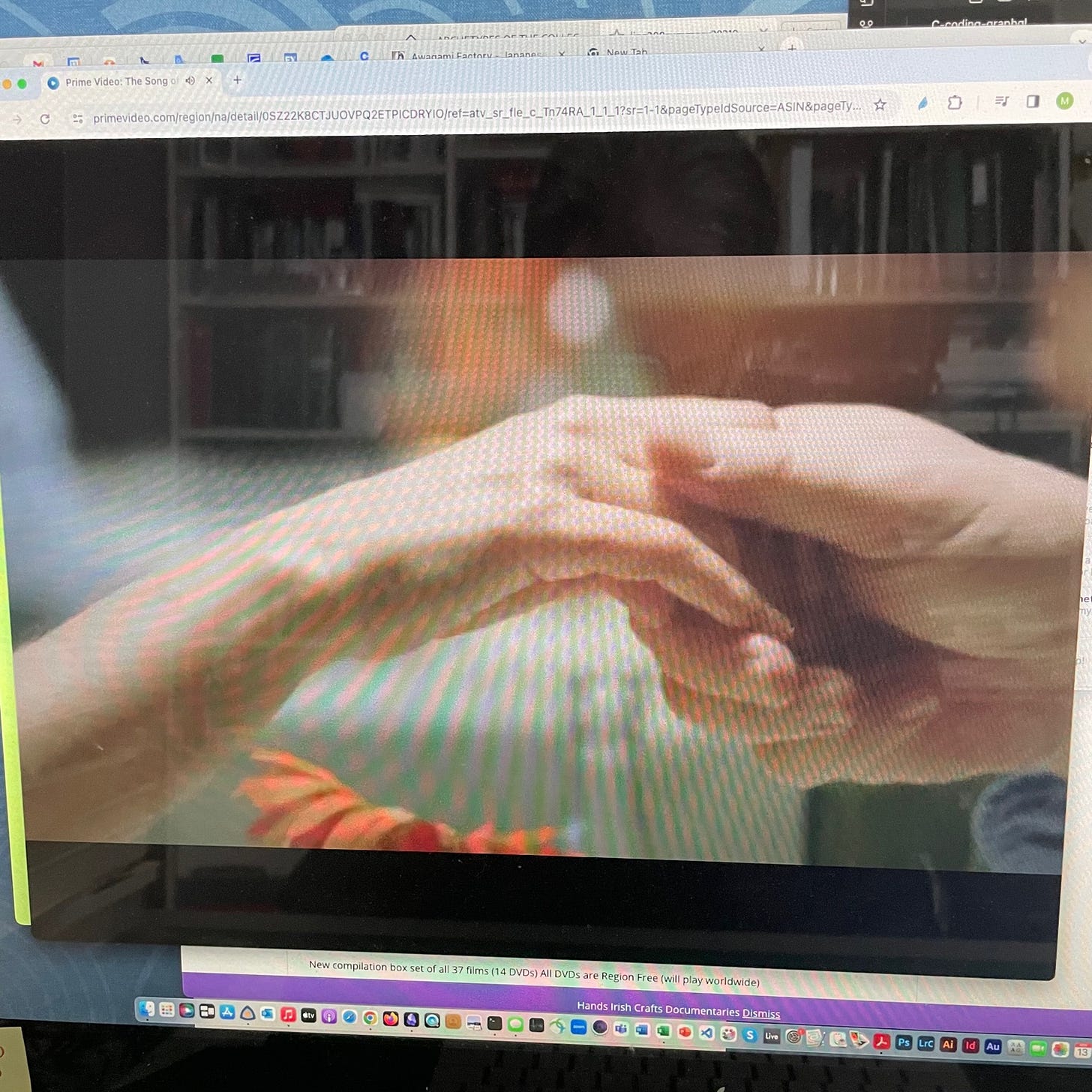Ancillary thought #1
In which Mike puts off for a bit long writing about his work for round one...
I don’t currently have the wherewithal to match Paul with his deep-dive reflections on process, if only because I’m not entirely sure I myself know what I’m doing. I think, though, this will become clearer to me as I work on round two. So I promise therefore (!!) to combine into one report my round-one and round-two reports…
Until then…
The thought comes to mind that verse / poetry can be a challenging collaborator with the visual arts. A poem can always be the servant of an image, or an image be the servant of a poem. Yet having both stand independently and breath together (a kind of “intimate distance”) is exciting when it happens. In my opinion it doesn’t happen often enough.
So this first ancillary thought is really just a recommendation, something with which you may delight regarding such pairings. This first pairing is perhaps the easiest to accept given that I’m reaaaaaallly stretching the definition of “visual” by including film (as strictly speaking film is a performing art.) My second and third ancillary thoughts — for future posts — will be of more and more constrained collaborations, more purely visual.
Recently a friend asked if I had ever watched “The Song of Lunch”, and he strongly recommended to do so if I hadn’t yet.
So to put things in order. First there was a narrative poem written in 2009 by Christopher Reid, initially published by CB Editions and then later re-published by Faber & Faber:
This is the tale of a middle-aged and aging literary editor who plans a re-union lunch in London’s Soho with a former lover — where “former” means “it all ended 15 years ago”. Reid teases here with big themes, or maybe it is the making-strange that comes from the school of poetry to which he belongs (called “Martian poetry”). And he does go hammer-in-tongs for one big theme/myth. Things go horribly wrong at the lunch, though. I get a sense that the woman across the table from the man with whom she used to be indeed still loves him, but she had to leave (and “leave” has a devastating double meaning in the poem).
Someone had the idea to pitch to BBC2 an adaptation of this poem as a film, and the result was a fifty-minute broadcast on October 7, 2010 (National Poetry Day in the UK) with Allan Rickman and Emma Thompson in the roles of “He” and “She”:
(The film is available on Amazon Prime Video.)
The verbal delight of the poem is supercharged by Rickman’s portrayal of the narrator and handling of verse. Thompson is luminous, especially as her character flashes frustration / impatience / a-desperate-willing-him-to-heal-himself (love? affection?) on page 53 and page 59.
I’ll recommend you read the poem first — if at all possible — and then watch the film. (This is, of course, my own prejudice/preference with such combinations.) The poem and the film each stand on their own, yet together right now they are speaking back and forth to each other in my noggin.



